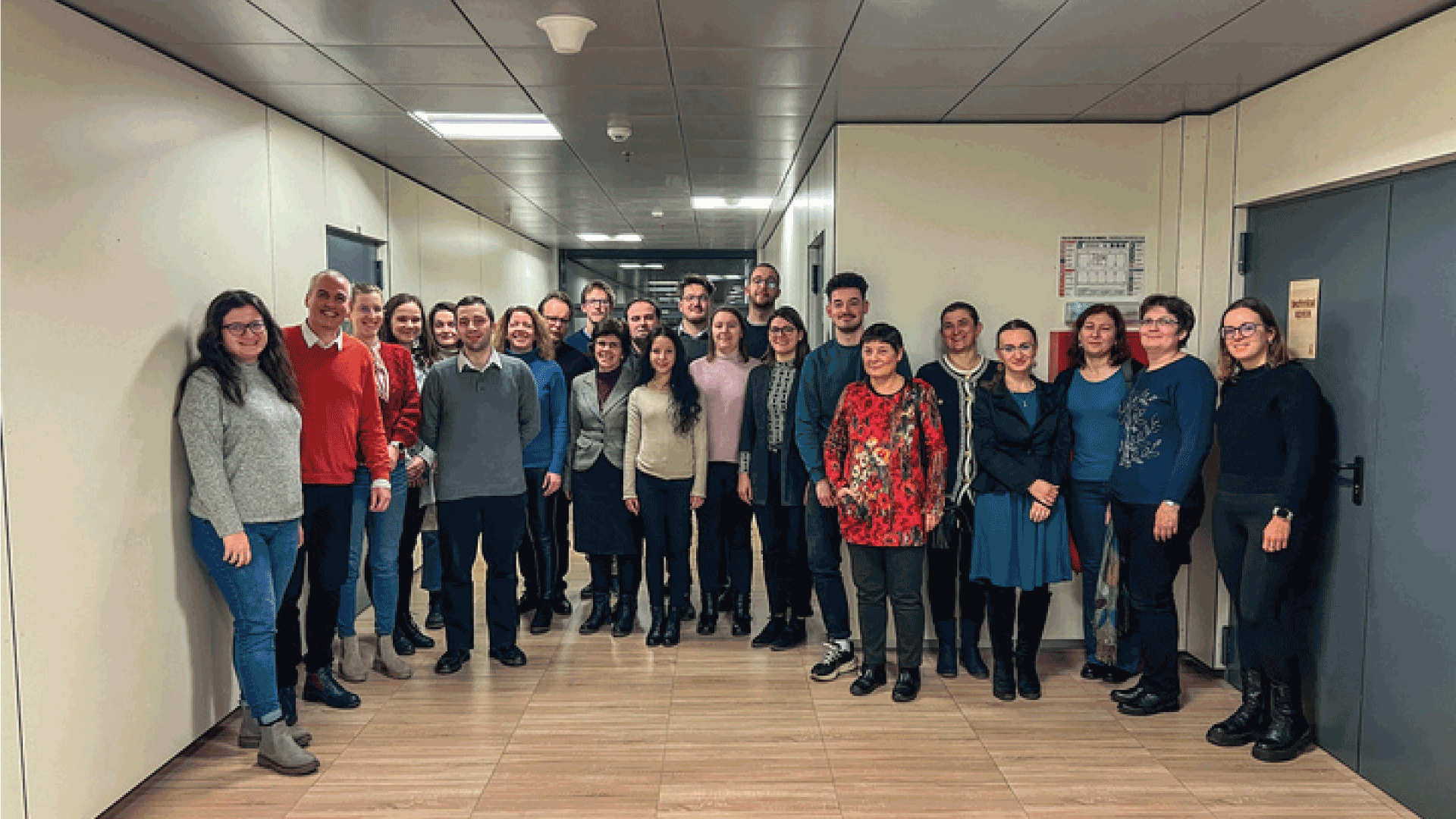From 31 January to 2 February 2024, a Digital Humanities Masterclass was held.
The Doctoral School of Hungarian Studies, the Doctoral School “History. Civilization. Culture”, together with the Cluj Regional Committee of the Hungarian Academy of Sciences (KAB), aimed to provide Hungarian doctoral and post-doctoral students in the humanities with an insight into the latest procedures, theoretical and practical solutions, cutting-edge projects from Hungary, from home and abroad in the field of digital humanities. He participated in the workshop of doctoral and post-doctoral students in humanities (literature, linguistics, ethnography, anthropology, history, philosophy).
The workshop was led by:
Eszter MIHÁLY (Deputy Director of the Centre for Digital Humanities, National Library of Hungary).
István SZEKRÉNYES (University of Debrecen / National Digital Heritage Laboratory).
Péter HORVÁTH (ELTE, Department of Digital Humanities / National Digital Heritage Laboratory)
Presentations were held by:
Róbert BODNÁR (Library of the University of Cluj-Napoca, Head of the Digitisation Department)
Szilárd FERENCZI (Digitéka, curator)
The programme of the event was:
31 January (Wednesday) 14.00 – 16.00: presentation of the digitization workshop of the Central University Library “Lucian Blaga” in Cluj, Róbert Bodnár (University Library, Digitization Department, Head of Department).
18.00: meeting and dinner for participants at the restaurant 1568.
1 February – Regional Centre of Excellence for Creative Industries
9.00-13.00:
Eszter Mihály (Deputy Director of the Centre for Digital Humanities, National Library of Hungary) spoke about dHUpla (https://dhupla.hu/), developed by the Centre for Digital Humanities of the National Széchényi Library, which is a state-of-the-art online platform for publishing textual resources held in public collections, providing a suitable research environment for the humanities. The main objective of the presentation was to describe the platform, which specializes in manuscript resources, and the overall infrastructure behind it, as well as the workflow that takes a digitized manuscript to the publishable stage and makes it available as a digital text in the online space. It also characterized the tools OSZK uses, including Transkribus, Oxygen’s XML editing software framework, the different stages of text processing, and the specifics of each project. Participants learned about new ways to use the data and metadata from the resulting text corpus in a wide variety of methods in the digital humanities, from the digital room to the digital image processing room.
13.00-14.00: lunch on site.
14.00-17.50:
István Szekrényes (University of Debrecen / National Digital Heritage Laboratory),
Automatic processing of documents, manuscripts, audio and video archives.
The hands-on demonstration showcased activities and tools from development projects of the Eötvös Loránd University’s Department of Digital Humanities that require artificial intelligence to produce digital texts from raw datasets (be it audio recordings, videos, scanned documents) that can be used for further research and queries. István Szekrényes focused in most detail on methods and developments related to and based on the results of handwriting recognition (e.g. semantic indexing), but he also addressed the specific challenges of speech recognition, with its results adapted to the Hungarian language.
Péter Horváth (ELTE, Department of Digital Humanities / National Digital Heritage Laboratory), Corpus, tools and methods: quantitative analysis of literary texts at the Department of Digital Humanities, ELTE.
The presentation discussed the research activities of the Department of Digital Humanities at Eötvös Loránd University, with a special focus on corpus-based research on Hungarian literary texts. Through the results of recent research, participants were familiarized with different methods of corpus linguistics, the possibilities of automatic recognition of poetic features, as well as literary corpora and query tools developed by the department.
19.00: Dinner for participants at the Bulgakov restaurant.
2 February (Friday)
10.00 – 11.30: Szilárd Ferenczi (Digitéka, curator): presentation of the Digitéka project (Faculty of Letters, Horea Street 31, Popovici Hall). The presentation was open to the general public.
The Digital Humanities Workshop was organised by Prof. habil. Levente T. Szabó (Director of the Doctoral School of Hungarian Studies), Prof. Judit Pál (member of the Hungarian Academy of Sciences) and the staff of the Cluj Regional Committee of the Hungarian Academy of Sciences (KAB) led by Professor László Nagy, member of the Hungarian Academy of Sciences.
For further details and a photo report of the event, see: https://lett.ubbcluj.ro/masterclass-digital-humanities-in-limba-maghiara/?fbclid=IwAR3DrwuTvSElPoysJdqqDWY9gu-b0h-n9sfX600rE639ViADI6es_2sqSsY

